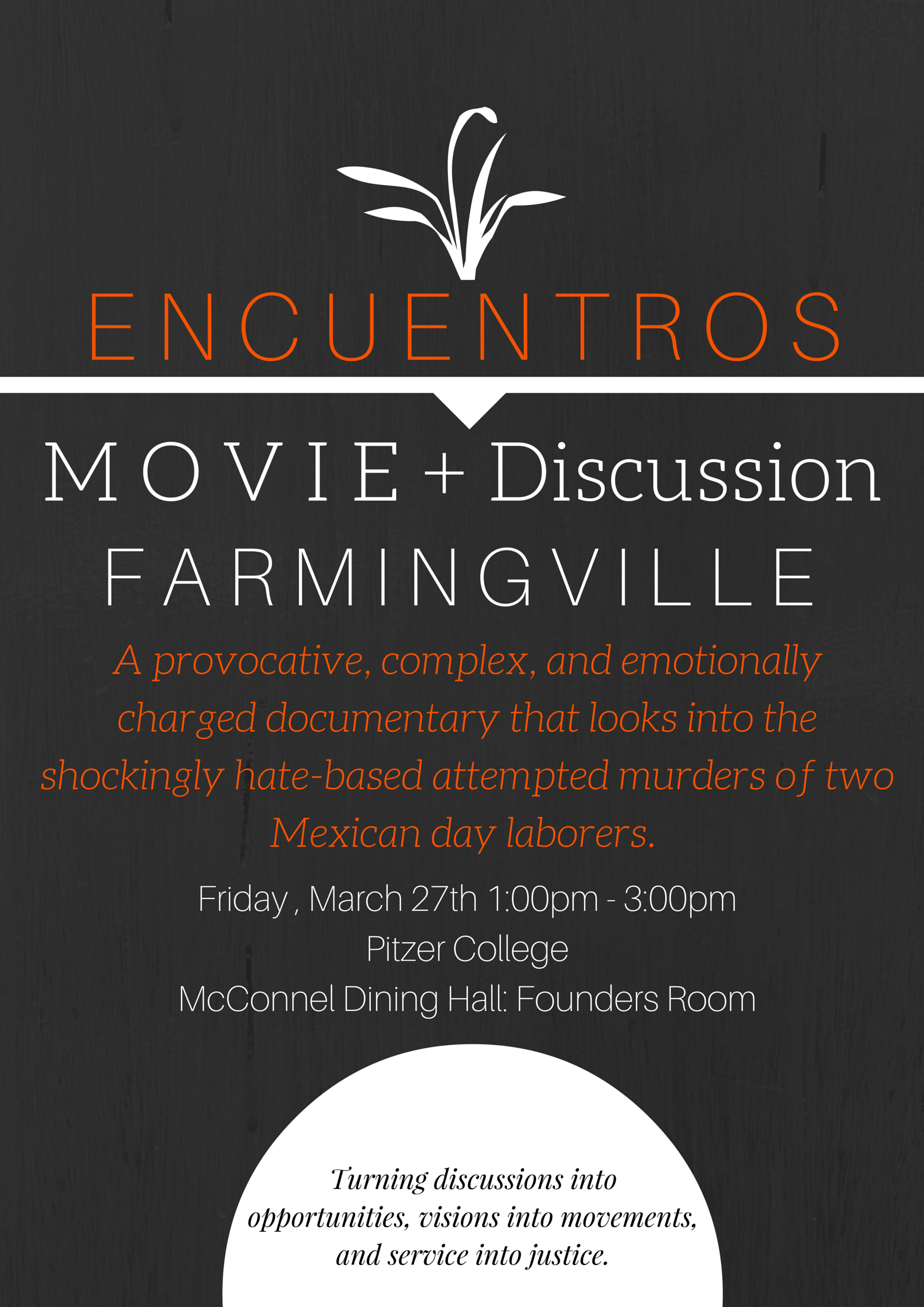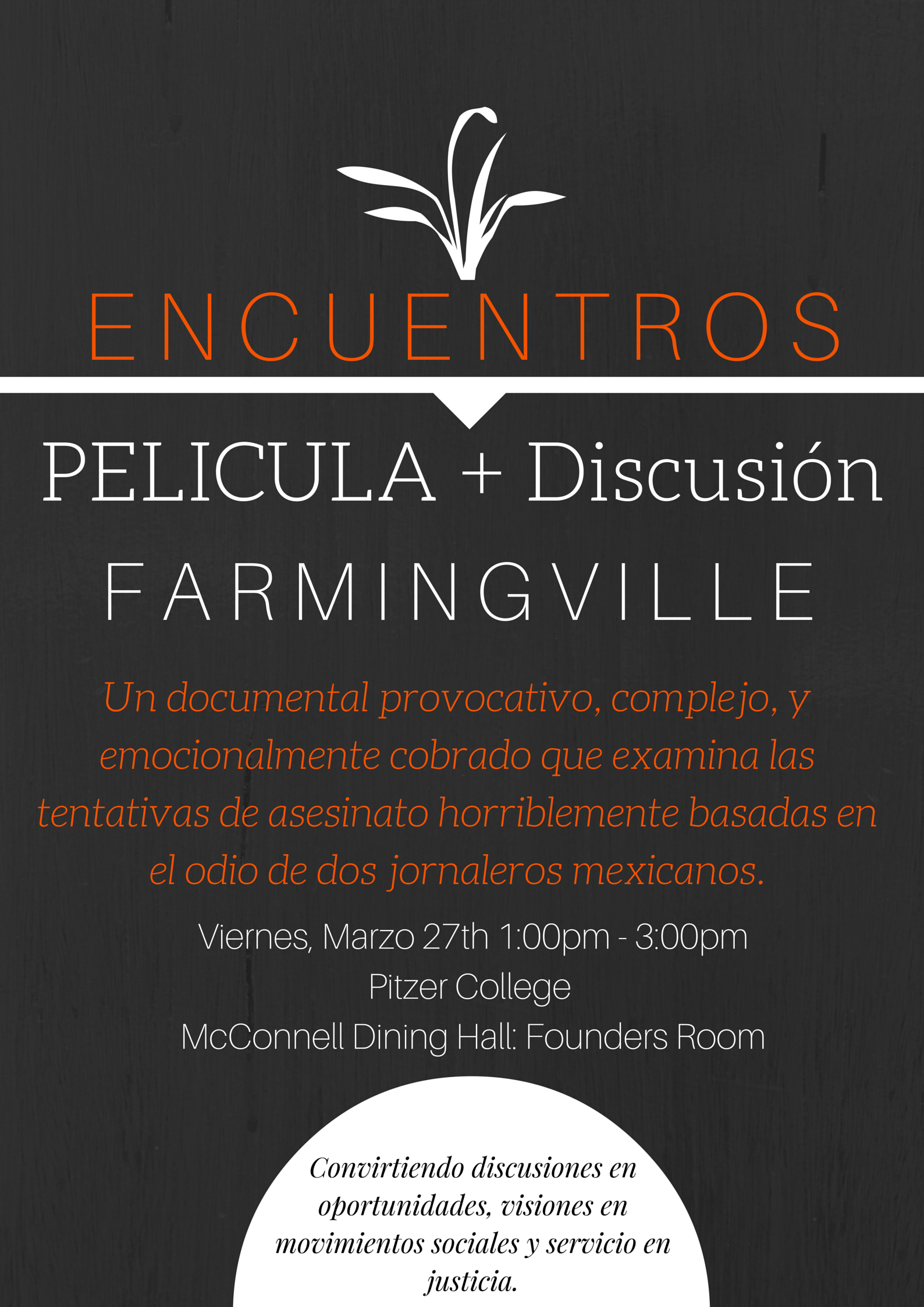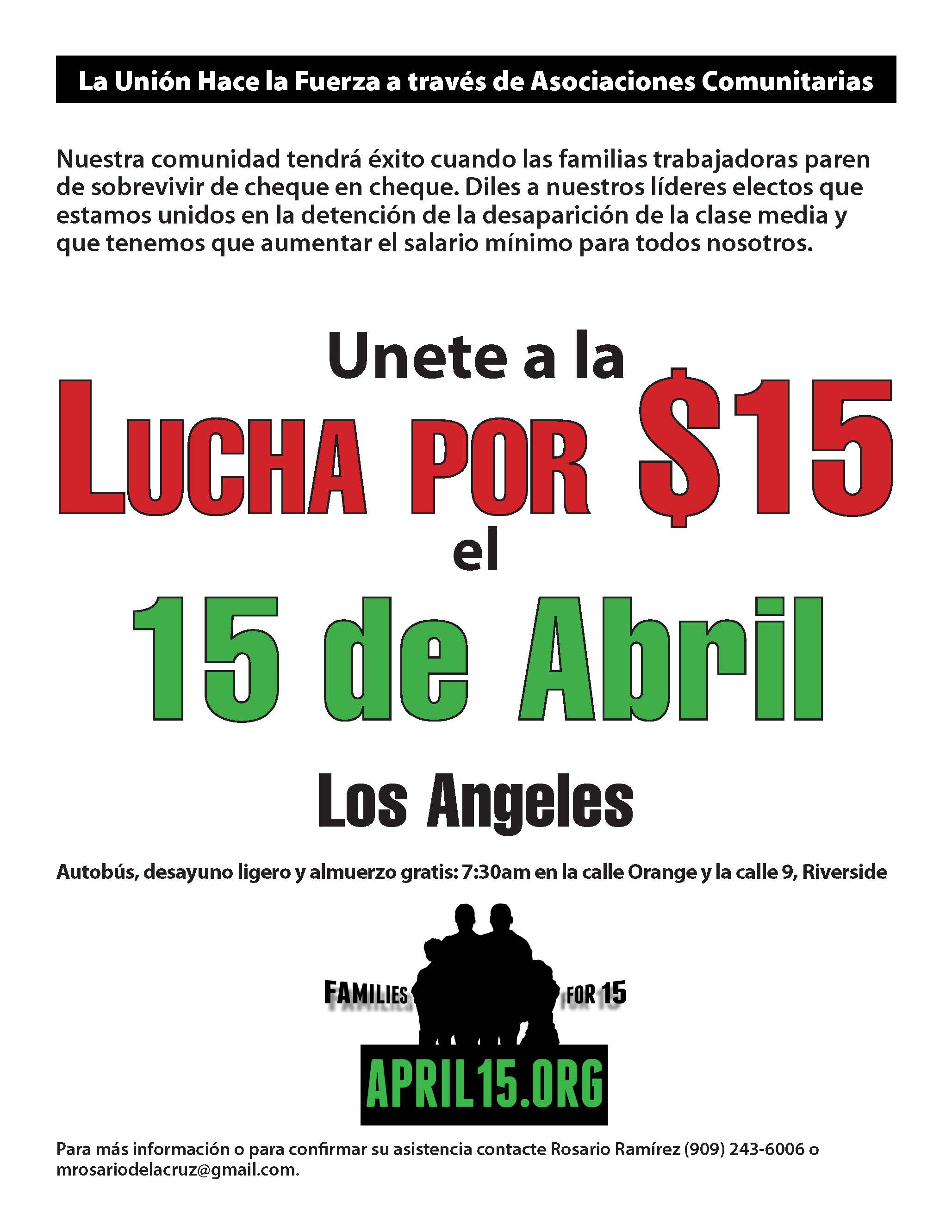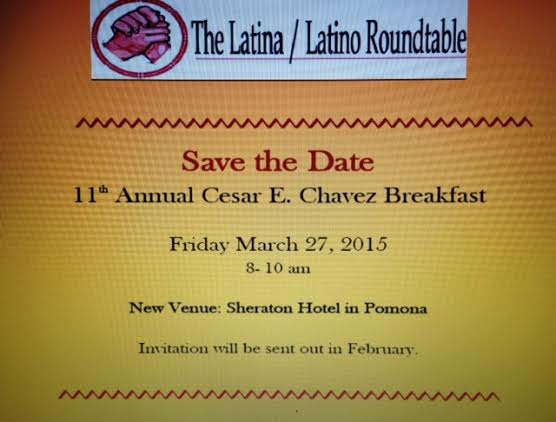n the morning on Friday, March 27th, we will all be part of the Cesar Chavez breakfast in Pomona. In the afternoon on the same day, between 1 and 3 PM, Pitzer students who have been organizing the weekly Encuentro lunches with day laborers, invite you to a showing of the internationally-acclaimed documentary “FARMINGVILLE” at the McConnell Dining Hall Founder’s Room (second floor of McConnell Building – 1050 North Mills Avenue in Claremont). For further information, you can e-mail or call Carlos Perrett at:
carlosperrett24@gmail.com
(909) 929-4507
Here is the PBS description of the documentary:
The shocking hate-based attempted murders of two Mexican day laborers catapult a small Long Island town into national headlines, unmasking a new front line in the border wars: suburbia. For nearly a year, Carlos Sandoval and Catherine Tambini lived and worked in Farmingville, New York, so they could capture first-hand the stories of residents, day laborers and activists on all sides of the debate.
In some ways, it’s a familiar American story: an influx of undocumented immigrants crossing the border from Mexico to do work the locals won’t; a flourishing “low-wage” labor market that depends on them; rising tensions with the resident Anglo population; charges and counter-charges of lawlessness and racism; organizing and counter-organizing — then a violent hate crime that tears a community apart. But this isn’t the story of a California, Texas or other Southwestern town. It’s the story of Farmingville, New York, on Long Island.
In the late 1990s, some 1,500 Mexican workers moved to the leafy, suburban town of Farmingville, population 15,000. Many were undocumented immigrants, and most found ready employment in Suffolk County’s thriving landscaping, construction, and restaurant industries. This didn’t prevent many of the town’s citizens from being shocked at the sudden influx of employment-hungry Spanish-speaking men crowding their street corners and over-crowding rented houses in their neighborhoods. Farmingville, after all, is about as far from a border town, or traditional employer of immigrant labor, as you can get.
Farmingville meticulously reveals the underlying forces, and the human impact, of what has become the largest influx of Mexican workers in U.S. history — a migration that economic globalization is carrying beyond border areas and major cities and into the small cities and towns of America. The filmmakers spent nearly a year in Farmingville, talking to all sides and filming the conflict as it unfolded in legal and political maneuverings, community organizing, vigilante action and, most tragically, violence. Farmingville achieves a remarkable intimacy with many of the principal players in the town’s drama, who share their personal hopes and fears, revealing just how profoundly local all politics, even global politics, are.
Tambini and Sandoval explore the conflict as it plays out as an ongoing clash of personalities and perspectives. Residents such as Margaret Bianculli-Dyber, who helps found and lead a group called Sachem Quality of Life (SQL), blame the Mexican day workers for bringing noise, overcrowding, and a crime wave to the area. Tempers boil as local officials deny any increase in crime and plead powerlessness to act against the workers. Other citizens, such as Ed Hernandez of Brookhaven Citizens for Peaceful Solutions and Brother Joe Madsen, counsel tolerance for the plight of the day workers. The contractors, restaurateurs and homeowners who hire the workers claim the local economy would come to a standstill without the Mexicans’ willingness to do hard, low-paying and sometimes dangerous labor. The workers, meanwhile, face rising incidents of verbal and physical harassment.
Then a vicious crime brings the conflict fully to the surface. Lured to a basement under pretext of a job, Israel Pérez and Magdaleno Escamilla are brutally stabbed and beaten. It’s the kind of racist violence one might expect in another place and time, but not in a Long Island town like Farmingville. Two young white men with ties to racist groups are later charged and convicted of hate-based attempted murder for the attack, which draws national media attention. Ominously, however, the shock of the incident serves to polarize and harden feelings rather than bring the community together.
A compromise approach that would create a hiring hall in hopes of ameliorating the problems is derailed by community resistance and the involvement of controversial national anti-immigrant groups, including the Federation for American Immigration Reform (FAIR). The bad feelings escalate as SQL and other groups adopt the strident views and rhetoric of Glenn Spencer’s American Patrol and Barbara Coe’s California Coalition for Immigration Reform, which see a Mexican conspiracy to seize control of much of the U.S.
The day workers themselves, led by immigrant activist Matilde Parada, organize a mutual help association called Human Solidarity to counter the harassment, fight for their rights, and reach out to the community. The workers come together on one of their most shared cultural traditions — soccer — and, in one of the conflict’s few bright spots, employ their hard-earned expertise in landscaping in exchange for permission to play on a local school’s athletic fields. The fields are groomed and a different kind of interaction is fostered when the workers joyously take the field. Yet despite the hopeful signs of conciliation and progress, Farmingville ends without resolution; at the film’s conclusion we find the community still struggling with a situation to which no clear solution seems imminent.
Farmingville is a complex, emotional portrait of an American town in rapid transition from a relatively homogenous community to a 21st-century village. “We wanted to tell this story from the inside out,” says co-producer Sandoval, “to capture the story as it happened. We shot over 200 hours of footage, in two languages, to reveal the personal stories behind the headlines and sound bites.”
“This is the latest battle over the American Dream,” adds co-producer Tambini, “one that puts every American town on the front line of deciding just who shares — and who controls — that dream.”











